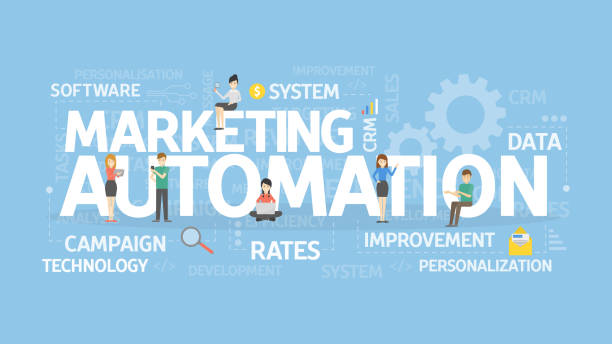Have you ever felt overwhelmed by the sheer volume of emails you need to send for your business? Do you find it challenging to stay consistent with your messaging and follow-ups? If you’re struggling to keep up, email automation could be the game-changing tool your marketing strategy needs. But, what exactly is email automation, and how can it help you achieve marketing success?
In today’s fast-paced world, consumers expect timely, personalized communication. As your business grows, manually sending emails to each customer becomes impractical and inefficient. Enter email automation—an essential tool that not only streamlines your email processes but also increases engagement and conversions. Whether you’re a small business owner or a marketer in charge of a large enterprise, email automation can make a significant impact on your bottom line.
In this blog post, we’ll explore why email automation is vital for marketing success and how it can help businesses of all sizes achieve their goals. Ready to boost your marketing strategy? Let’s dive in!
What Is Email Automation?
Before we dive into the benefits, it’s essential to understand what email automation is. Simply put, email automation allows you to send pre-scheduled, triggered, or personalized emails to your audience without manual effort. These emails are sent automatically based on specific actions or timeframes.
For example, when a user signs up for your newsletter, you can send an automated email to welcome them to your community. If a customer abandons their shopping cart, you can trigger an email to remind them to complete their purchase.
But what makes email automation so powerful?
1. Boosting Efficiency and Saving Time
One of the most significant advantages of email automation is the time it saves. Think about it—without automation, you’d have to manually send hundreds or even thousands of emails to customers, wasting valuable time.
Email automation streamlines this process by allowing you to set up campaigns in advance. You create the emails once, set triggers (like when someone joins your list or makes a purchase), and the system does the rest.
This efficiency frees up your time to focus on other important aspects of your business, such as strategy, content creation, and customer support. Plus, it ensures consistency in your messaging, which can sometimes be challenging when managing manual email campaigns.
2. Personalization at Scale
Personalization is the key to building strong relationships with your audience, but achieving it at scale can be difficult. Thankfully, email automation makes it possible.
Through email automation, you can personalize emails based on customer behaviors, preferences, or demographics. This goes beyond simply adding their name in the subject line. Automated emails can include tailored product recommendations, birthday offers, or updates about products they’ve shown interest in.
Research shows that personalized emails have higher open rates and engagement compared to generic ones. By delivering content that resonates with your audience, you build trust and loyalty, ultimately leading to more conversions.

3. Increased Customer Engagement
Customer engagement is crucial for the success of any marketing campaign. Automated emails enable you to keep customers engaged without constantly needing to create new content from scratch.
For instance, you can set up a series of welcome emails for new subscribers, share valuable content, offer discounts, and nurture leads over time—all automatically. This type of consistent communication helps keep your brand top-of-mind and drives long-term customer relationships.
Automation also ensures that your emails are sent at the right time. For example, a time-based trigger can automatically send an email to a customer who hasn’t opened your previous email, increasing the chances of them engaging with your content.
4. Improved Conversion Rates
What if you could send the perfect email at the exact right moment to convert a lead into a customer? With email automation, this is possible. Automated workflows are designed to nurture leads, guide them through the sales funnel, and ultimately convert them into paying customers.
For example, cart abandonment emails have proven to be highly effective in converting visitors into buyers. When a customer adds products to their cart but doesn’t complete the checkout process, an automated email can remind them about the items and even offer an incentive (such as a discount) to finalize the purchase.
By staying in touch with customers throughout their journey, you can increase conversions, drive sales, and improve your ROI.
5. Better Data Collection and Analysis
Another significant benefit of email automation is the ability to collect valuable data and insights. Every time an email is opened, clicked, or ignored, it provides critical information about your audience’s preferences and behaviors.
With email automation tools, you can track metrics like open rates, click-through rates, conversion rates, and unsubscribe rates. This data allows you to refine your strategies, understand what resonates with your audience, and optimize your campaigns for better results.
Moreover, the data you collect from automated campaigns can also be used to segment your email list. This way, you can tailor your messaging even further, ensuring that your audience receives the most relevant content.

6. Cost-Effective Marketing
Email marketing, in general, is one of the most cost-effective forms of communication. When combined with automation, it becomes even more affordable.
Since automated emails are sent without manual intervention, you don’t need to hire a large team to manage your campaigns. Additionally, many email automation tools offer scalable plans that allow you to pay only for what you need.
With automation, you can send targeted emails to a large number of people while keeping costs low—making it a powerful tool for small businesses with limited budgets. Furthermore, because automated emails are designed to generate higher engagement and conversions, the return on investment (ROI) is often higher than with traditional marketing methods.
7. Enhancing Customer Retention
Email automation isn’t just about acquiring new customers; it’s also about retaining them. Retention is often more cost-effective than acquisition, and email automation can play a huge role in keeping customers engaged over the long term.
By setting up automated post-purchase follow-ups, loyalty program emails, or product recommendations, you keep customers coming back for more. Additionally, you can segment your list based on customer behaviors to send them relevant emails based on their purchase history or engagement with your brand.
Customer retention is essential for sustained business growth, and email automation helps you achieve this goal efficiently.
8. Seamless Integration with Other Marketing Tools
Email automation doesn’t exist in a vacuum. In fact, it integrates seamlessly with other marketing tools, creating a more holistic and effective marketing strategy.
For instance, email automation can work alongside your customer relationship management (CRM) system, helping you track interactions with your customers. It can also be integrated with social media campaigns, website interactions, and lead generation efforts to create a more personalized and consistent experience across all channels.
When all of your marketing efforts are connected, you create a cohesive strategy that drives better results.
9. Streamlining Your Campaigns
Consistency is key in any successful marketing strategy. With email automation, you can easily maintain a consistent flow of communication with your audience. By automating your email campaigns, you ensure that your emails are sent at the right frequency without the risk of overburdening your audience with too many messages.
Moreover, automation allows you to set up recurring campaigns, such as monthly newsletters or seasonal promotions, ensuring that your audience receives valuable content on a regular basis. This consistency builds trust and familiarity, which are essential for customer loyalty.

Conclusion: The Future of Marketing is Automated
The power of email automation is undeniable. By improving efficiency, personalization, engagement, and conversion rates, it’s become an essential tool for businesses looking to succeed in today’s competitive market.
If you’re still managing your email campaigns manually, it’s time to make the switch to automation. Not only will you save time and effort, but you’ll also be able to provide a more personalized and consistent experience for your customers.
Email automation is no longer a luxury—it’s a necessity for modern marketing success. So, why wait? Start automating your email campaigns today and watch your business thrive!








